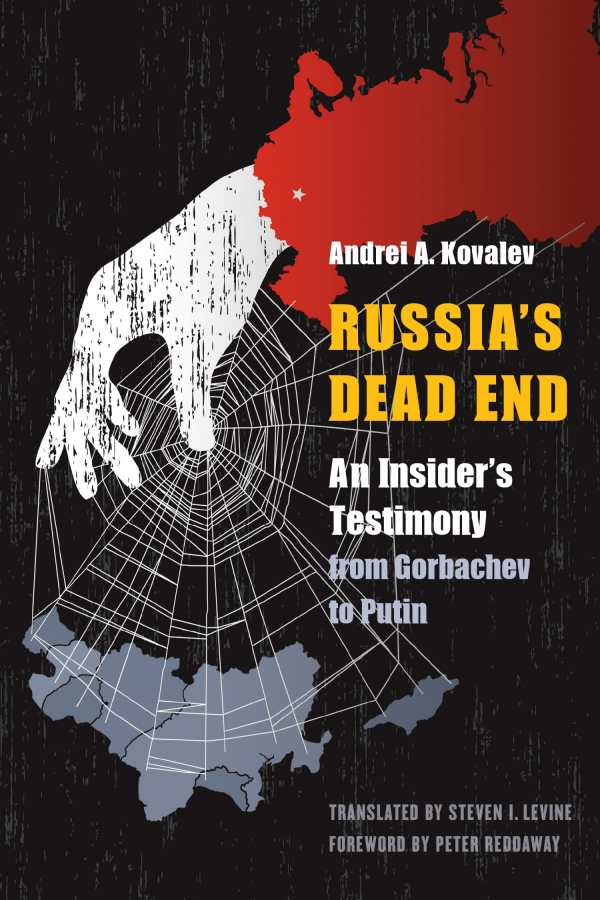Russia's Dead End
An Insider's Testimony from Gorbachev to Putin
Told with a clear eye and an articulate pen, Russia’s Dead End is an honest look at a great nation that continues to suffer under a barbaric regime.
Winston Churchill once described the Soviet Union as a “riddle wrapped in a mystery inside an enigma,” and the fall of the USSR did not make the situation any clearer. Andrei A. Kovalev highlights why Russia remains stuck in neutral in Russia’s Dead End.
Although Kovalev has a PhD in history, his is not the perspective of a detached academic. Kovalev’s father, Anatoly, was a liberal poet and foreign-policy official who belonged to the inner circle of Soviet leaders. As Russia’s Dead End recounts, the Kovalev household received the news of President John F. Kennedy’s assassination long before the rest of Moscow.
Thanks to the endemic corruption and reactionary tendencies of post-Soviet leaders Boris Yeltsin and Vladimir Putin, Russia has maintained its status as a neocolonial power. It has pursued military adventurism abroad, in Afghanistan, Tajikistan, Chechnya, Georgia, and Ukraine, in order to facilitate state-sponsored gangsterism at home.
As Kovalev sees it, the Bolsheviks, who are spiritually and intellectually empty, never lost power in Moscow. Sure, Marxism-Leninism no longer holds sway over Russia’s “slave” masses, but the new Bolshevists inside the state security complex refuse to relinquish their highly abusive power.
Russia’s Dead End should be required reading for all American students interested in joining an intelligence service or a foreign-policy agency. Kovalev’s well-written and incisive book dispels several common myths about the world’s great Eurasian power.
First and foremost, Russia’s embrace of parliamentary democracy did not signal the end of the long intellectual war between capitalism and communism. Rather, as Kovalev shows, Russia’s new czars simply kept the Soviet apparatus and its apparatchiks in place. He argues that the West’s weakness toward Moscow has allowed Putin, an authoritarian strongman, the space to continue to exploit Russian citizens as was done to the serfs of old.
Told with a clear eye and an articulate pen, Russia’s Dead End is an honest look at a great nation that continues to suffer under a barbaric regime. This book is more than a dialogue about democracy versus authoritarianism. It is about the difference between a state that is dependent on its citizens and a state that makes its citizens into dependents.
Reviewed by
Benjamin Welton
Disclosure: This article is not an endorsement, but a review. The publisher of this book provided free copies of the book to have their book reviewed by a professional reviewer. No fee was paid by the publisher for this review. Foreword Reviews only recommends books that we love. Foreword Magazine, Inc. is disclosing this in accordance with the Federal Trade Commission’s 16 CFR, Part 255.

